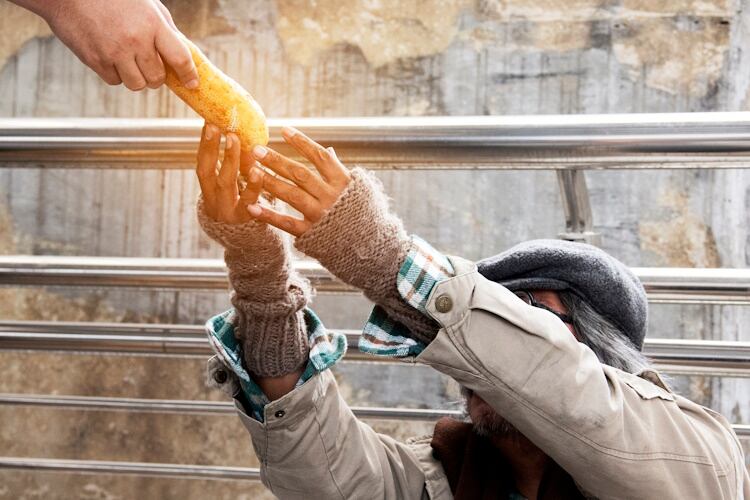Investors are looking beyond flavour and today are betting big on mission-driven bakery and snack startups that do more than fill stomachs. These companies are baking in purpose – be it sustainability, nutrition or social good – and that’s a recipe that investors find irresistible.
Mission-driven brands command higher loyalty, justify premium pricing and often land strategic partnerships or exits. Their strong narratives, clear founder purpose and engaged communities build a moat around their business. And in a category where new brands launch constantly, being mission-first cuts through the noise. Whether it’s saving the planet, fighting hunger or making indulgence inclusive, purpose gives startups an edge investors are keen to scale.
The business case for doing good

Mission-led startups are gaining ground because they align with consumer values and deliver long-term brand loyalty. A 2023 survey by NielsenIQ revealed 82% of global consumers consider sustainability a key purchase driver, while an FMCG Gurus report found over 70% actively seek out healthier snacks with transparent sourcing. That loyalty is the golden ticket for investors seeking stable growth in a volatile economy.
Investor appetite for purpose-led food businesses shows no sign of waning. As Danielle Chaim and Asaf Eckstein argue in their article for the Oxford Business Law Blog, ‘institutional investors are increasingly willing to cede control rights to trusted venture capitalists and founders in startups that demonstrate a clear mission and vision.’ Their trust-based governance model helps explain why mission-driven snack ventures - often rich in purpose but early in traditional performance metrics - are proving attractive to modern investors.
In 2024, global investment in agrifoodtech startups totalled $12.1 billion, according to AgFunder. While that figure marked a modest decline year-over-year, funding in developing markets surged by 63%, reaching $3.7 billion – signalling a growing emphasis on sustainable, inclusive food ventures. Meanwhile, Dealroom reported Q2 2023 foodtech startup investment reached $3.4 billion, rebounding to pre-pandemic levels and indicating sustained investor confidence in health- and sustainability-oriented innovation.
As Matt Truman, CEO of True Global Ventures, noted in a recent report from Impact on Urban Health, “We believe that investing in healthier challenger brands gives our fund an edge.”
Curt Garner, chief customer and technology officer for Chipotle, echoed a similar sentiment in 2023 when the US-based fast-casual restaurant chain company (that’s a pioneer in promoting ethical sourcing) doubled its Cultivate Next venture fund: “Our decision to double our commitment to our Cultivate Next venture fund is a clear indicator that we are investing in the right companies that we can learn from and utilise to improve the human experience of our restaurant teams, farmers, and suppliers.”
Brands that walk the talk

In 2025, GoodSAM Foods, a woman-led US startup focused on regeneratively grown chocolate and nuts, raised $9 million in a Series A round led by Beyond Impact with participation from Satori Capital and E²JDJ. Its mission – empowering smallholder farmers in Colombia and Kenya through direct trade and agroforestry – exemplifies how a values-based model can drive meaningful investor interest.
UK-based Wildfarmed, which supplies regeneratively grown wheat to bakeries and snack producers, raised £6 million in late 2024. The round was led by LGT Impact Ventures and included backing from Flour Pot Bakery and chef Andi Oliver to support its expansion across Europe.
San Diego-based Chuza is another standout. In 2024, it won the PepsiCo Greenhouse Accelerator (Juntos Crecemos edition), securing a $100,000 grant and six months of mentorship. Its range of spicy dried fruit snacks celebrates Mexican heritage while meeting the growing demand for culturally authentic, better-for-you snacks. Chuza now retails in more than 500 stores across the US.
And Popcorn for the People – a New Jersey-based startup employing neurodivergent adults to craft gourmet popcorn – continues to scale thanks to fresh support from government grants and impact investors committed to inclusive employment models.
Brands tackling hunger, equity and representation are also resonating with investors. Nunbelievable, which donates a meal for every cookie sold, continues to grow through angel investment and crowdfunding. To date, it has delivered over 1.5 million meals in partnership with hunger relief organisations.These ventures don’t just appeal to values-conscious consumers – they offer compelling narratives that can drive loyalty and market differentiation. And in a competitive retail landscape, that emotional connection can translate into strong sales.
Accelerators fuelling the mission movement

Programmes like Mondelēz’s CoLab, PepsiCo’s Greenhouse and Warburtons’ Batch Ventures are cultivating the next generation of purpose-led bakery and snack brands. These accelerators provide early-stage companies with mentorship, funding and retail pathways – and offer investors a pipeline of validated, innovation-ready startups.
PepsiCo’s backing of Chuza followed its 2024 Greenhouse cohort, while Mondelēz has invested in several CoLab alumni including allergy-friendly pioneer Hu Kitchen. Warburtons, meanwhile, supports better-for-you snacking ventures like Urban Legend and Rootles (a biscuit brand made from root vegetables) through its Batch Ventures initiative.
These tie-ups are about more than capital – they’re strategic investments in what’s next.
In short: Today’s investors aren’t just backing snacks that sell – they’re betting on brands that stand for something. Mission-driven startups are winning on shelves, in hearts and in boardrooms. Purpose isn’t just good ethics: it’s good business.


